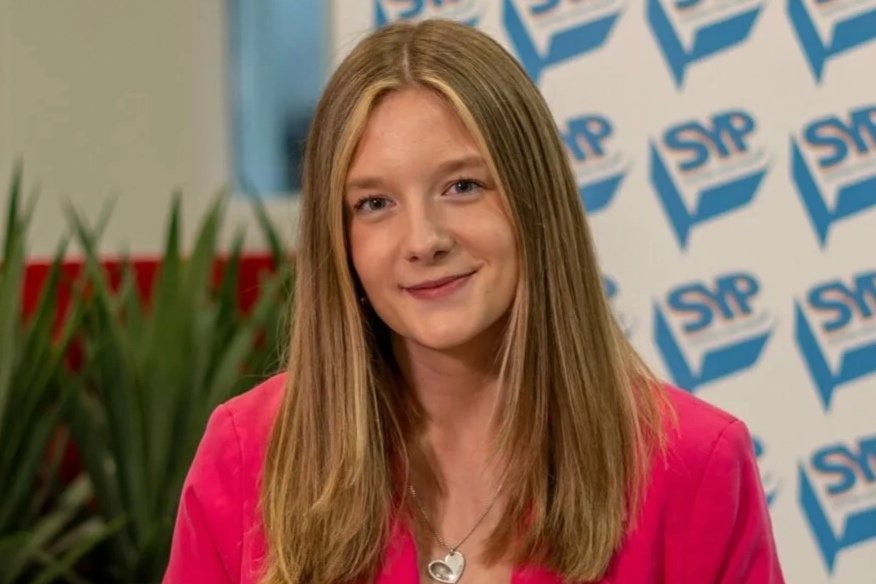Blog: How Free Bus Passes for Young People are boosting the economy
Ellie Craig discusses how under 22’s free bus passes are helping to build a fairer, more connected, and more prosperous Scotland for everyone.
21st November 2025
by Ellie Craig MSYP
Ellie Craig MSYP is Chair of the Scottish Youth Parliament and the MSYP for Glasgow Cathcart. She is also a trustee of Young Scot and a board member of The National Lottery Community Fund. Outside of her governance roles, Ellie is about to enter her final year at the University of Glasgow, studying Politics and Sociology and also works as a youth worker for a young carers centre.
When Scotland introduced free bus travel for everyone under 22, the policy was often discussed in terms of fairness and sustainability. But beyond the social benefits, there’s an important economic story to tell.
Free bus passes for young people aren’t just a transport policy — they’re an economic multiplier. That means the money invested by the government generates wider and repeated benefits across the economy. With over 250 million journeys taken since the scheme launched three years ago, it is clear that this is a conversation worth having.
Saving Money, Spending Locally
At the most basic level, free bus travel saves young people and their families money. The average bus fare in Scotland can quickly add up, especially for students or apprentices commuting daily. When that cost disappears, young people have more disposable income to spend on other things — food, clothes, social activities, or technology.
This change in spending behaviour creates a multiplier effect. Every pound not spent on bus fares is likely to be spent in local shops or cafes, supporting small businesses and helping them pay wages, which in turn are spent again in the economy. The benefits ripple outward, supporting more jobs and local growth.
Opening Doors to Opportunity
The economic impact isn’t just about what young people buy — it’s also about where they can go. Free bus travel gives young people greater access to jobs, apprenticeships, colleges, and universities, especially in rural or low-income areas where transport costs can be a major barrier.
In urban areas where there are more bus options, it is also resulting in more school trips as teachers no longer have to worry about increasing the cost of the school day by asking parents for additional money.
With more affordable access to work and education, young people can build skills, earn higher incomes, and contribute more to the economy over their lifetimes. In this way, the policy boosts productivity and strengthens Scotland’s future workforce. It’s an investment not only in public transport but in human capital — the skills and potential of the next generation.
Reviving Town Centres
Free bus travel also helps reconnect communities. Many young people use their bus passes to travel to high streets, cinemas, sports clubs, and cafes that they might otherwise struggle to reach. This movement supports local businesses, encouraging more activity in towns and city centres that have struggled with declining footfall.
When these businesses do well, they hire more staff, pay more taxes, and buy more from suppliers — all of which adds up to stronger local economies. It’s a clear example of how public spending in one area can trigger private spending and growth in others.
Long-Term Savings for Society
There are also longer-term financial benefits. When more young people can access education and work, fewer need unemployment or welfare support. Building people’s confidence on public transport early in life also reduces car use so lowers congestion, reduces emissions, and improves public health — all of which save money for government and taxpayers over time.
The Bigger Picture
In economics, a multiplier describes how one initial investment can lead to a larger overall increase in national income. Free bus passes for young people in Scotland do exactly that. By cutting transport costs, opening up opportunity, and encouraging local spending, they create economic benefits that far exceed the initial government outlay.
This is why young people in Scotland are calling for expansion of the scheme up to 25 and across all forms of public transport. This policy features as part of the Scottish Youth Parliament's Manifesto for the 2026 Scottish Parliament election, ‘Dear Scotland’s Future’. Read about all 31 policies here.
In short, this isn’t just a policy about buses — it’s about building a fairer, more connected, and more prosperous Scotland for everyone.


